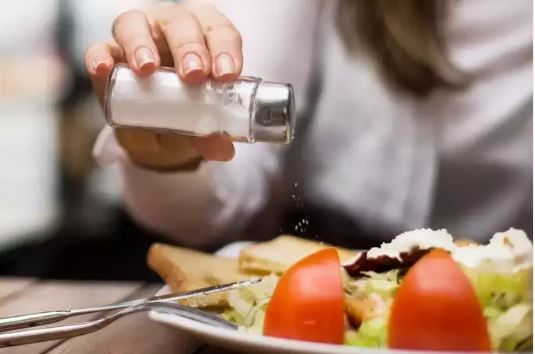
Salt plays an essential role in elevating the taste of the food.
No matter how well you spice up your cuisine, without salt, it is likely to taste bland and boring.
Having said that, there is no wrong in seasoning your food while it’s cooking on the stove.
However, if you’re someone who adds extra salt to their food at the table, you may be at a higher risk of premature death, claims a study involving over 500,000 middle-aged Britons.
About the study
The research published on July 11 in the European Heart Journal looked at data from 501,379 participants in the UK Biobank project, who had joined the study between 2006 and 2010 and were followed for about nine years.
The study participants were asked via a touch-screen questionnaire whether they added salt to their foods and if they did, how often they do so. The options included: i) I never/rarely, ii) occasionally, iii) generally, iv) always, or v) prefer not to answer.
The study did not include people who responded ‘prefer not to answer.’
Compared to people who never or rarely added salt, those who frequently added salt were at a 28% increased risk of dying prematurely.
Study leader Professor Lu Qi, of Tulane University School of Public Health and Tropical Medicine, New Orleans, USA, said: “To my knowledge, our study is the first to assess the relation between adding salt to foods and premature death.”
“It provides novel evidence to support recommendations to modify eating behaviours for improving health. Even a modest reduction in sodium intake, by adding less or no salt to food at the table, is likely to result in substantial health benefits, especially when it is achieved in the general population,” he adds.
Furthermore, the study author also explains how adding salt to foods at the table is a common eating behaviour that indicates an individual’s long-term preference for salty-tasting foods.
How adding salt to meals can affect life expectancy in men vs women
While on an average, those who added extra salt to their meals had a 28% increased risk of premature death, for men aged 50, who added salt to the foods, about 2.28 years were slashed off of their life. For women, it was 1.5 years.
Other risk factors included age, sex, ethnicity, deprivation, body mass index, smoking, alcohol intake, physical activity, diet and medical conditions such as diabetes, cancer and heart disease.
The study recommends eating fruits and vegetables
The study findings come as a shock for many who love seasoning their foods with some extra salt.
Almost 18,500 premature deaths i.e. death before age 75, were recorded after the data was collected between 2006 and 2010.
But apart from that, study researchers also found that the risks were slightly reduced in people who ate more fruits and vegetables, even though these results were not statistically significant.
“We were not surprised by this finding as fruits and vegetables are major sources of potassium, which has protective effects and is associated with a lower risk of premature death,” said Prof. Qi.
The dangers of eating too much salt
According to the World Health Organization (WHO), high sodium consumption (>2 grams/day, equivalent to 5 g salt/day) and insufficient potassium intake (less than 3.5 grams/day) contribute to high blood pressure and increase the risk of heart disease and stroke.
That said, salt intake of less than 5 grams per day for adults helps to reduce blood pressure and risk of cardiovascular disease, stroke and coronary heart attack, suggests the global health agency.
How does salt increase blood pressure
Eating too much salt can cause your body to hold extra water to wash the salt from your body. In some people, this may lead to high blood pressure. In the long run, this can stiffen and narrow down the blood vessels, limiting the blood and oxygen flow to key organs. This furthermore strains the heart, giving rise to many cardiovascular diseases, including heart attack.
Signs you’re eating too much salt
There are many ways you can tell if you’re consuming too much salt. Some of the signs include:
– Bloating
– Swelling
– Raised blood pressure
– Frequent thirst and urination
– Disturbed sleep
– Weakness
– Gastrointestinal issues
Ways to cut down your salt-intake
The UK National Health Services (NHS) recommends shopping for foods with lower salt content.
“Compare nutrition labels on food packaging when buying everyday items. You can really cut your salt intake by checking the label and choosing the pizza, ketchup or breakfast cereal that’s lower in salt. Try choosing 1 food a week to check and swap when you’re food shopping,” the health body advises.
Furthermore, they recommend eating healthier snacks, choosing fruit or vegetables such as carrot or celery sticks.
“If you are going to have crisps or crackers, check the label and choose the on




